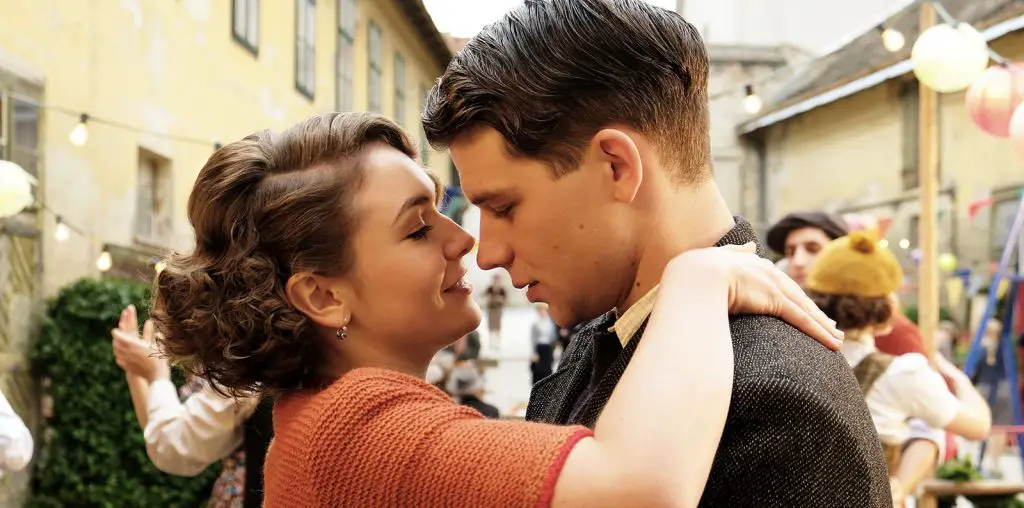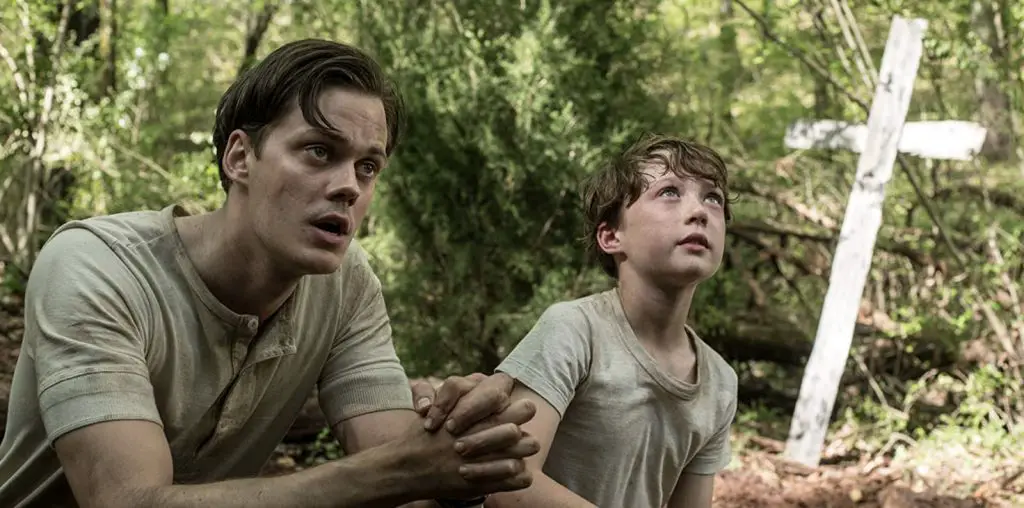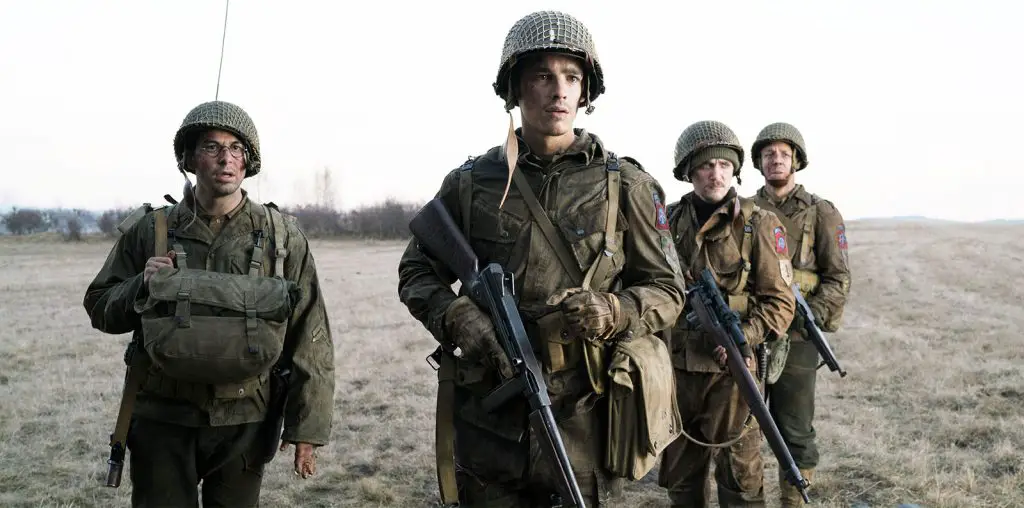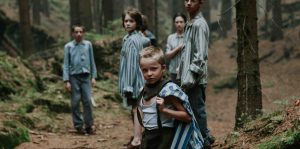
There are no actual werewolves in Polish filmmaker Adrian Panek’s blend of WWII drama and psychological horror Werewolf. The somewhat misleading title refers to the monster within us all, Panek displaying how everyone is capable of transforming into savage beasts when enough pressure is applied. Relentlessly bleak, but also sublime and quite terrifying, Werewolf cements its place in the pantheon of great “children-growing-up-too-fast-due-to-witnessed-horrors” films like I’m Not Scared, Pan’s Labyrinth, The Orphanage, and, of course, the classic Come and See. Imagine the latter crossed with Cujo, and you’ll have a relatively clear idea of what to expect.
It’s 1945, and the evacuation of Nazi concentration camps has begun. After witnessing a woman getting ripped to shreds by a dog, the young, highly introspective, hardened Wladek (Kamil Polnisiak) narrowly escapes death himself. Along with a group of children, he ends up in an abandoned mansion deep in the woods, overlooked by Jadwiga (Danuta Stenka), stuck between “drunk Russians and starving Germans.” There’s no water or electricity, and they’re running short on potatoes.
With him is the authoritative Hanka (Sonia Mietielica), whose wrist scars are still fresh from when she tried to chew off her veins. Wladek quickly develops a crush on the older girl, but it seems as though she’s got her eyes set on the rebellious Hanys (Nicolas Przygoda). Tensions boil, further exacerbated by the fact that mutilated, dead bodies begin to show up; with Jadwiga among the recently deceased. The culprit? A bunch of ravenous German Shepherds, left behind by their Nazi owners.
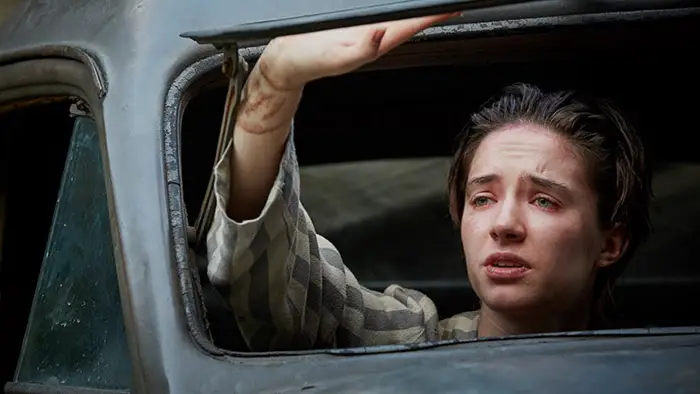
“The children end up trapped inside the dilapidated mansion, fighting off rabid canines…”
The children end up trapped inside the dilapidated mansion, fighting off rabid canines, bouts of vomit, and the occasional rapist – as well as themselves and someone who may just be hiding in the house with them. The film’s final 30 minutes, with Panek’s cunning, intermittent use of slow-motion, is pure edge-of-your-seat filmmaking excellence.
Yes, the Lord of the Flies references are difficult to overlook, but this character-driven piece stands on its own. Panek examines war’s effect on humans, how it devastates childhoods, and how one clings to a sense of morality in a word gone berserk. Werewolf is also about control: the power Nazis held over their victims as if they were dogs, and how it consequently affected/ manifested itself among the victims, especially impressionable children still figuring out the difference between right and wrong.
Kamil Polnisiak gives a savage performance, swallowing grease, shutting the door on a friend in dire need of help, training his dog with the coarseness of a SS officer. Przygoda’s Hanys (another remarkably lived-in feat of acting) may be more outwardly violent, but it’s the quiet ones that tend to harbor unimaginable demons. And then there’s Mietielica, imbuing Hanka with determination, steely resolve, and unadulterated compassion.
Panek doesn’t sugarcoat anything in his beautifully-shot, grim tale, but ultimately, it’s his belief in human kindness that prevails. There may not be any lycanthropes in Werewolf, but they’d most likely seem like puppies next to the true evil he depicts.
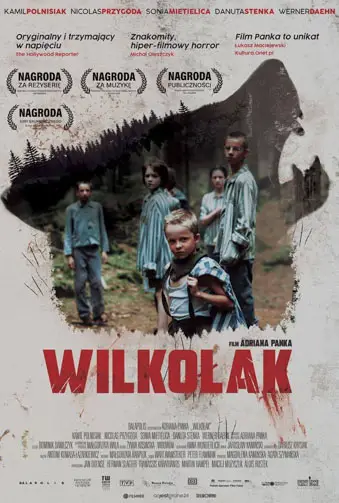
"…doesn’t sugarcoat anything in his beautifully-shot, grim tale..."
